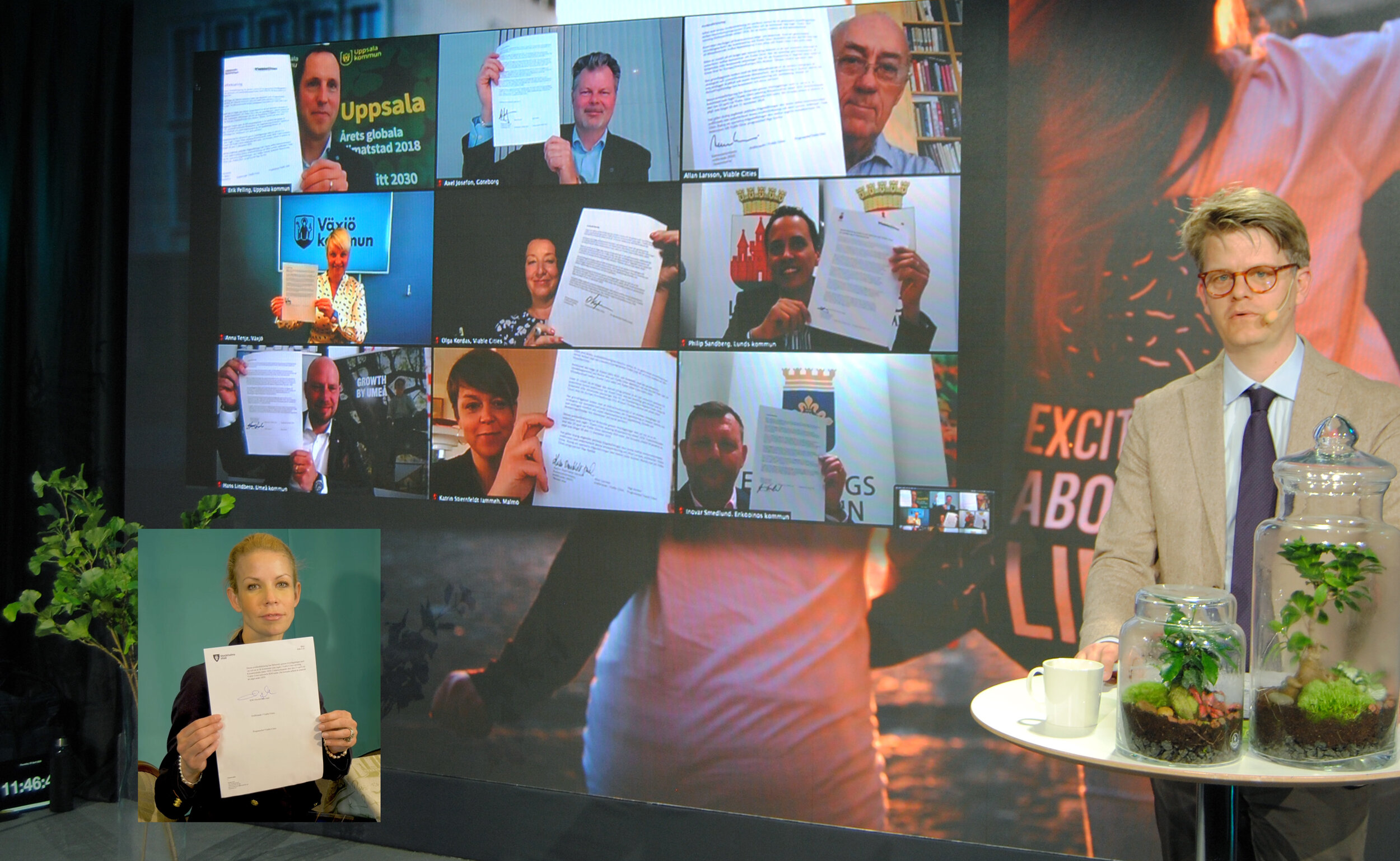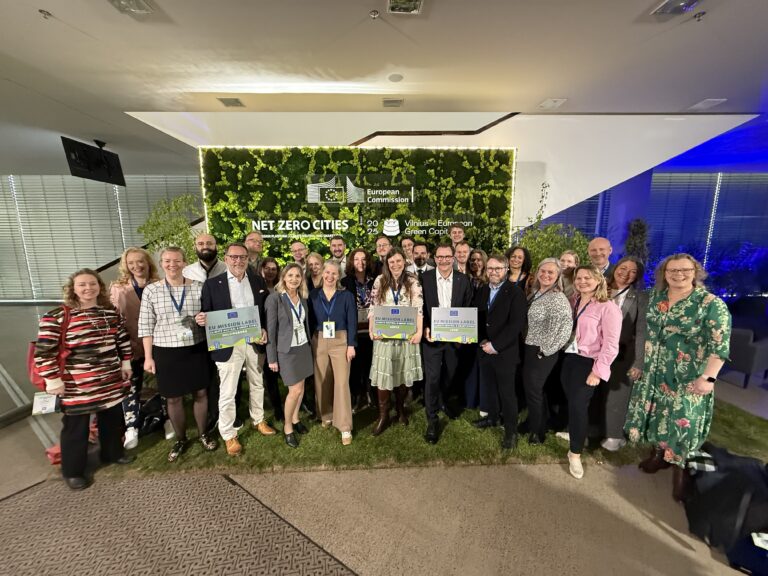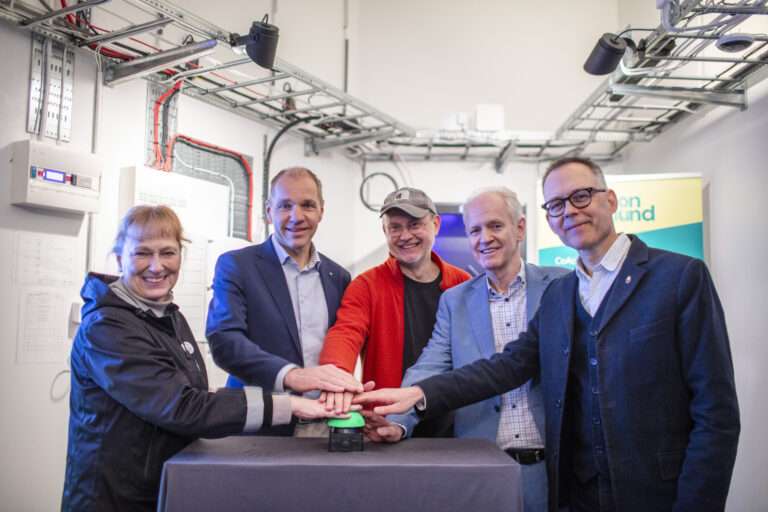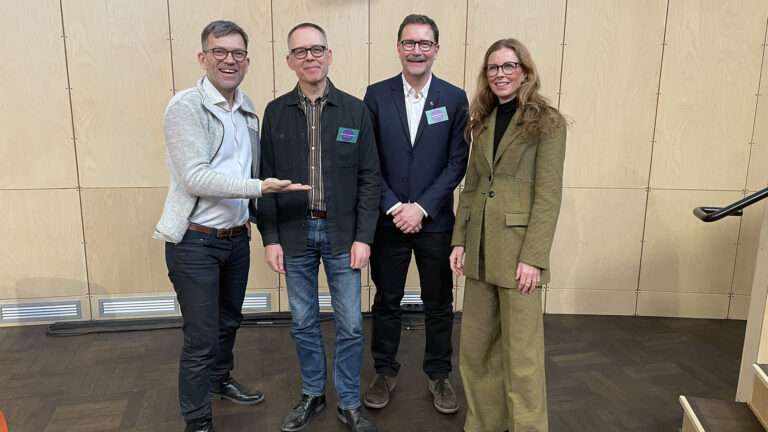On April 23, eight Swedish cities - Enköping, Gothenburg, Lund, Malmö, Stockholm, Umeå, Uppsala and Växjö - took a big step forward in the climate transition. As part of the Viable Cities strategic innovation program, they will inspire other cities in Sweden and around the world to achieve climate neutrality by 2030.
Within Viable Cities, the cities and their partners will now accelerate and develop systems and processes to achieve greater economic, social and environmental sustainability in line with the SDGs. The eight cities signed a letter of intent yesterday, which is an important step in the process of formulating a Climate City Contract for cities, a Climate City Contract. In short, it is about changing how we finance climate change to make it happen faster.
Katrin Stjernfeldt Jammeh, a municipal councillor in Malmö, sees several advantages to being on the train.
- 'We have high ambitions, and if you want to be at the forefront, you can't repeat what others have done, but you can take advantage of it and refine it. We in the municipalities have a great responsibility and we need to be able to try new things, the power we get in this network is incredibly important," she says.
The collaboration also involves a concerted effort by several national government agencies and organizations to support the cities in implementing the climate transition. The eight cities will also be well prepared for future EU initiatives, in line with the European Green Deal, which aims for a climate-neutral continent.
The meeting on April 23 also discussed how the Corona pandemic affects the work on climate neutrality. Anders Wijkman, Chairman of the EIT Climate-KIC, nevertheless saw opportunities in the current crisis.
- It is now important that the coming recovery does not lead us to keep fossil fuel solutions, which have led to climate change, under wraps, but to use the investments as smartly as possible.
Representatives from the Swedish Energy Agency, Vinnova and Formas, which fund Viable Cities, also attended the meeting and reflected on the current situation. According to Robert Andrén, Director General of the Swedish Energy Agency, their commitment to climate investments is long-term and stable, and said that there is now room for a climate-smart restart.
- We will also act to minimize the negative effects of the Corona crisis on the innovative startups that are central to a "Climate Smart Restart", not least when we return to a more normalized society again. Otherwise, there is a risk of a strong return to the old wheel tracks for pure security reasons. Sweden benefits when Sweden leads the way," he said.
With the signing of the MoU, the eight cities and their Viable Cities partners will start working intensively to finalize a draft Climate City Contract by December this year to support climate transition of cities.
The whole meeting can be viewed on YouTube.
Participating local council chairs:
Enköping: Ingvar Smedlund
Göteborg: Axel Josefson (and Emmyly Bönfors Jansson)
Lund: Philip Sandberg
Malmö: Katrin Stjernfeldt Jammeh
Stockholm: Anna König Jerlmyr (recorded) and Gunnar Björkman
Umeå : Hans Lindberg
Uppsala: Erik Pelling
Växjö: Anna Tenje
Panelists:
Elin Olsson, State Secretary to the Minister for Financial Markets and Housing Per Bolund
Robert Andrén, Director General, Swedish Energy Agency
Darja Isaksson, Director General, Vinnova
Emma Gretzer, Deputy Director General, Formas
Staffan Isling, CEO, Swedish Association of Local Authorities and Regions
Göran Färm, Chairman, Kommuninvest
Svante Axelsson, National Coordinator, Fossil Free Sweden
Anders Wijkman, Chairman, EIT Climate-KIC
Helena Bjarnegård, National Architect of Sweden, Swedish National Board of Housing, Building and Planning.
Viable Cities Chairman Allan Larsson and Viable Cities Program Manager Olga Kordas.
Moderator Per Grankvist led the conversation .




